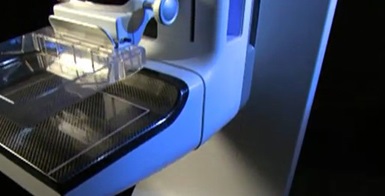 While there are lifestyle changes that aid in avoiding cancer, just as important are the regular cancer screenings we should all have performed.
While there are lifestyle changes that aid in avoiding cancer, just as important are the regular cancer screenings we should all have performed.
In recognition of National Cancer Prevention Month, know the risk factors associated with certain types of cancer and the test available to detect them early.
McLaren cancer physicians recommends talking to your physician so-together-the both of you can discuss the recommendations for screenings, based on your ages, family history and personal risk factors.
Oncologists from around the country agree on the following screenings for early detection covering an array of cancer.
Breast cancer
Mammograms remain the standard for early detection of breast cancer when it is still easily treated.
Women should begin considering mammograms starting at age 40:
Ages 40 to 44 Begin a conversation with your physician regarding the need "“ if there is one "“ for a screening test.
Ages 45 to 54 Recommended that women get a yearly mammogram.
Ages 55 and older Consult your physician about switching to a mammogram every two years or if you should continue a yearly mammogram.
Regular screenings should continue as long as you remain in good health and expect to live at least 10 more years. You should also familiarize yourself with your breast (how they normally look and feel) and consult your physician of any changes.
Colon and colorectal cancer
Tests include a yearly guaiac-based fecal occult blood test (gFOBT), yearly fecal immunochemical test (FIT) or stool DNA test (sDNA) every third year.
Men and women should start getting screening beginning at age 50. Consult your physician about which test is best for you.
The tests can find early signs of cancer, including polyps, and colonoscopies can be ordered if these screenings come back positive.
Cervical cancer
The Pap test is the cervical screening that provides early detection for potentially pre-cancerous and cancerous developments in the cervix. Women should begin cervical cancer screenings at age 21.
Ages 21 to 29 Women should have a Pap test every 3 years and an HPV test if anything comes back abnormal.
Ages 30 to 65 Women should have a Pap test and HPV test every 5 years.
Ages 65 and older Women who have had screenings for the previous 10 years with normal results can cease screenings. A woman who has had a total hysterectomy for reasons not related to cervical cancer and who also has no history of cervical cancer should not be tested. Additionally, all women who have been vaccinated against HPV should follow the recommendations of their age group.
Lung cancer
A screening consists of an annual low-dose CT scan of the chest to check for signs of lung cancer. The American Cancer Society does not recommend regular tests for people who are not at an increased risk due to cigarette smoking. Screenings might be right for you if you are all of the following:
55 to 74 years old
In overall good health
Have a history of smoking at least 30 packs a year
Still smoking or have quit within the past 15 years
Ovarian cancer
The Pap test does not screen for ovarian cancer. There is currently no early detection screening test for ovarian cancer. Physician strongly recommend women pay close attention to their bodies and if you should notice any changes, report them to your physician.
The doctor may order a diagnostic test, which can include a rectovaginal pelvic exam, transvaginal ultrasound or CA-125 blood test.
Skin cancer
There is no current screening for skin cancer, yet physicians note that fair-skinned men and women aged 65 and older, people with abnormal moles or more than 50 moles are at a greater risk of skin cancer. Doctors encourage those at greater risk to look for abnormalities in the skin and consult a physician, who may perform a diagnostic test.
To learn more about the cancer care offered by the Karmanos Cancer Institute at McLaren Macomb, Ted B. Wahby Cancer Center, visit mclaren.org/macombcancer
While there are lifestyle changes that aid in avoiding cancer, just as important are the regular cancer screenings we should all get.